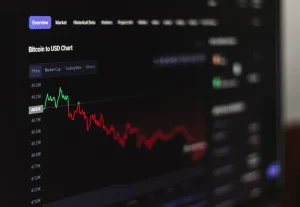| Americas | Articles

Sam Bankman-Fried’s FTX, one of the largest crypto exchanges in the world, went from being valued at USD32 billion back in January to filing for bankruptcy in early November 2022. This collapse, and the potential of billions lost for investors, will push crypto regulation across the globe to the forefront.
Bankman-Fried and FTX are currently being investigated by the US Justice Department, the Securities & Exchange Commission (SEC), and the Commodity Futures Trading Commission (CFTC). The UK and US regulators have already taken steps toward regulation and oversight, with the FTX incident most likely quickening the regulatory rule-making process.
Some of the main factors leading to the collapse of FTX included:
- The allegations of transfers of approximately USD10 billion in assets from FTX to Bankman-Fried’s hedge fund, Alameda Research, raising significant conflicts of interest. Documents have been released stating that Alameda held a significant amount of FTT (FTX’s exchange coin).
- The split on regulatory jurisdiction within the US regarding which regulating body should be responsible for oversight of the crypto market. To date, the crypto market has largely been unregulated and does not mandate specific controls on assets custodied on exchanges to prevent misappropriation.
- Binance, one of FTX’s biggest corporate rivals, announcing plans to liquidate USD2.1 billion of FTT around this time. This is problematic because, unlike stocks, cryptocurrencies can be traded on many different exchanges at different prices, however Binance has more than 50% of the entire crypto market. As a result, it has a strong influence on the market price of cryptocurrencies.
Soon after the Binance announcement, a frenzy of investors began to withdraw funds from FTX, causing a liquidity crisis. In the wake of the crisis, FTX agreed to an acquisition from Binance. However, after performing corporate due diligence on FTX, Binance backed out of the deal leaving FTX, FTX US and Alameda Research no choice but to file for chapter 11 bankruptcy. Current estimates show USD1.2 billion dollars as being unaccounted for in the FTX financials.
The overall impact of the potential fraud will be felt by the crypto markets in the upcoming months as regulators unearth additional details. Many have likened the collapse to the likes of Enron, Lehman Brothers and Bernie Madoff, all of which resulted in significant rulemaking by regulators.
How will this impact the US legislation of cryptocurrencies?
In the US regulatory environment, spot and derivatives markets are subject to different regulatory programs. Currently, the CFTC is the primary regulator of commodity derivatives marketplaces, while the SEC is the primary regulator of securities marketplaces. The two agencies share oversight responsibility for certain aspects of security derivatives marketplaces. However, to date, no legislation has been passed by the US Congress delegating enforcement or rulemaking authority around crypto assets to any specific regulator.
While the Lumis-Gillibrand legislation continues to make its way through the Congressional approval process, both the SEC and the CFTC have engaged in extensive saber rattling over their prospective oversight roles of cryptocurrencies. However, until Congress, or the courts, take action, the regulatory outlook for cryptocurrencies remains murky.
What does the future hold for crypto regulation?
With the collapse of FTX, the crypto industry should be expecting and preparing for the upcoming waves of legislation and rulemaking that are sure to impact the compliance and investment management programs of all broker dealers and crypto advisers across the globe.
How we can help
We will continue to monitor this situation and will provide insight into rule proposals as they are released. We actively work with several crypto trading and cryptocurrency-related clients, leveraging our experience in this space to help firms navigate the increasingly complex regulatory environment.
Get in touch if you want to enhance your regulatory compliance and operational resilience or need help in relation to digital assets and financial crime, regulatory perimeter guidance or MTF application support.

